Trudie Myerscough-Harris - Interview
by Nick Dent-Robinson
published: 10 / 4 / 2020
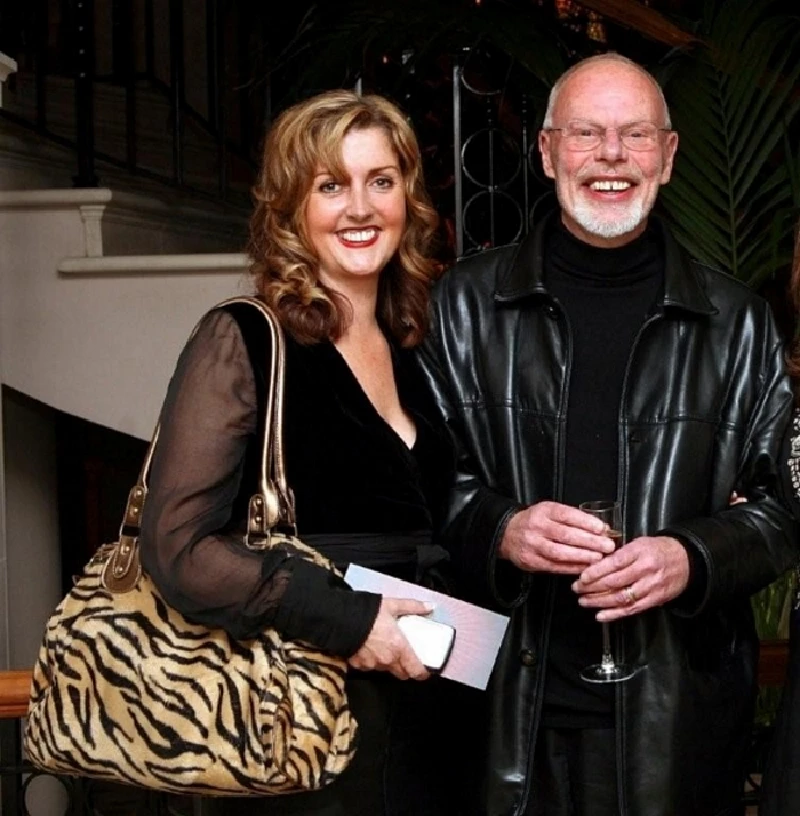
intro
In this archival interview from 2009, Trudie Myerscough-Harris, the wife of legendary DJ Bob Harris, talks to Nick Dent-Robinson about her life from her upbringing on a farm to becoming an executive PA to marrying Bob and his successful battle against cancer.
BBC Radio 2's “Whispering” Bob Harris is a living legend; one of the greats of British music broadcasting. He's been passionate about good music from his days on the ground-breaking 'Whistle Test' BBC TV show through to his current twice weekly Radio 2 programmes. He was co-founder of ‘Time Out’ magazine and has written books, produced records and even interviewed a US President. Lately he's been successfully fighting prostate cancer and is active in working with cancer charities. Behind the scenes, Bob has one big advantage. For the last three decades he has enjoyed the hugely energetic support of his wife, 55 year-old Trudie Myerscough-Harris, who co-founded the award-winning Whispering Bob Broadcasting Company with him. Trudie is Bob's manager, press and PR adviser, fixer and counsellor as well as the mother of their three children. She has helped him through the shocks of career upheavals, bankruptcy, his devastatingly grim cancer diagnosis in 2007 and subsequent health issues, towards an ever-brighter future. But Trudie has quite a life story of her own. From her young days, milking cows on her family's Somerset farm, to her jet-setting times as executive PA to Mohamed Al Fayed and her recent years with Bob, mixing with the world's rock music aristocracy. In this, her first ever media interview, Trudie talks frankly about her life before and after she met Bob. Including some of her hopes, fears and her unfulfilled fantasy. Trudie Myerscough-Harris and I meet in a hayloft. A beautifully refurbished hayloft, above a converted stable next to a calf shed on a working farm in Steventon, Oxfordshire. These are the premises of the business Trudie runs with her husband, Bob. Whispering Bob's Broadcasting Company, WBBC, is an independent broadcasting production business that makes radio documentaries, organises and promotes major music charity events and undertakes PR and management for Bob. There's an obvious contrast between this bucolic setting and the high-powered discussions Trudie undertakes daily with some of the biggest names in music. But it seems an idyllic working environment. “We love it here. My children and many of the people who visit say they'd like to live in this place. It was such a find. And it is less than a mile from the house we've lived in for 25 years just outside the village. But in a funny way it has been like coming home for me, going full circle. You see I was raised on a farm, up at dawn milking the cows. Now here I am back again, next to a calf shed!” “I am farming stock through and through. The Myerscoughs – we pronounce it 'Myersco' – originated in Lancashire but my branch of the family lived in the south. They farmed in Somerset where I was born and in Hampshire, near Winchester. Though my grandfather was an artist, Raymond Myerscough-Walker. He was part of the pre-war Chelsea art set and friendly with Augustus John and the young Clement Freud. He was very Bohemian, curly long hair and a beard. His children never wore shoes; he taught them at home. My father and an uncle went into farming but another brother became Lighting Designer at the Royal Court Theatre.” “When I was quite young my parents moved from Somerset to run a farm at Sparsholt, near Winchester and I went to primary school there. Then we sold up everything and all emigrated to farm in Spain. I was ten. It was the 1970s - Franco was still running Spain - and there were problems with work permits. So after a year we had to come back – to a farm in Somerset again, near Frome.” “My sister and brothers went to private schools but I attended the local comprehensive. I used to work on the farm before and after school. Doing really tough jobs; the whole family worked hard. “After my sister left home to become a nurse in London I was really keen to follow her. The lure of London and a career in fashion suddenly seemed much more appealing than life on a Somerset farm, much as I had always enjoyed that. So one weekend when I was seventeen, I visited my sister – she was staying with our uncle, the theatre light designer - and I called at Fortnum & Mason and Liberty and Harvey Nichols. Fortnum offered me a job on the spot but it didn't have a connection with fashion. Liberty had nothing. Harvey Nichols said they'd think about it. And they did. Within three days they'd written to me back in Somerset and offered me a job in their Designer Room. Could I start the next Monday? I was thrilled!” “So I joined Harvey Nichols and absolutely loved it. It was the early ‘80s and London was booming. Lots of people with money and working in the Designer Room I was shocked at people spending £80,000 or £100,000 in an afternoon; thousands of pounds on one jacket. But just because you have money, it doesn't mean you have taste and I quickly learned the art of tactfully steering super-rich customers away from bad choices towards something more flattering for them. At one point I was going off to Lucy Clayton's School of Modelling or to the London College of Fashion but I thought, no, I just want to keep working.” Did you want to become a fashion buyer? “They wanted me to do that. I was put on a fast-track training scheme and my first placement was in Personnel, looking after the new staff joining the store. I really enjoyed that but soon I was asked to be PA to the store's Fashion Coordinator, Fiona Ronaldson. I was helping organise all the fashion buyers' trips to the shows in Milan, New York and Paris.” “Then the head of Press and PR, Andrew Wiles, asked if he could share some of my time. So I started doing work in the Press Office, fielding questions from reporters and reading all the papers each day. Even now I still have that habit and scan three papers every morning, checking for relevant news items. I helped Andrew with the launch of a new young person's department in Harvey Nichols called Zone. It was great fun with lots of press attending and Culture Club, Curiosity Killed The Cat and other 'new romantics' there. The launch DJ was Richard Allinson who is now on Radio 2. That was my first contact with the world of music and radio.” “But the night ended dramatically. One of the guests, a manufacturer, was a little drunk and fell into the big PA system. It toppled over and crashed on to me. I was knocked unconscious and, when I came to, I'd lost the feeling in my legs. I was rushed to hospital but fortunately I'd just bruised the base of my spine badly. They sent me to Ireland to convalesce. When I returned to the store Fiona had left. So I thought I'd have a complete change too. I was offered a job with a PR agency in a tiny office in Oxford Street but I hated it. After Knightsbridge, Oxford Street seemed ghastly and I missed having a big, exciting store to walk around and feel part of.” “Then, out of the blue, just three weeks later, Andrew Wiles phoned to invite me for lunch. Mohamed Al Fayed had just bought Harrods and was recruiting as many Harvey Nichols staff as he could. Andrew was joining Harrods as their head of marketing, press and PR. Would I be his PA?” “It was a brilliant opportunity. So, just days later, I was working in Harrods helping run fashion shows, doing promotions and press liaison with top magazine editors, product launches, styling events for magazines, overseeing window displays - it was a dream of a job.” So, how did you meet Mohamed Al Fayed? “Each day Mr Al Fayed did a tour of the store after he arrived in the afternoon. He always called on us in the Press and PR Office. Sometimes we'd arrange interviews for him with journalists and he'd ask me to sit in with him. Then, after I'd done this a few times, he asked me to be his personal PA.” “The very first week I worked for Mohamed Al Fayed, he suddenly said, 'Go get your passport. We are going to Paris.' Three hours later I was in his executive jet en route to stay in the Ritz. Fantastic! It was so exciting but challenging too. Because you had to be alert all the time. It gave me a great insight into how the store ran and how to deal with some very high profile people. A fabulous training. We went through a lot together. The various corruption allegations, the big Department of Trade & Industry inquiry into Mohamed Al Fayed's purchase of House of Fraser and Harrods plus constant criticism from Tiny Rowlands – all with mega press coverage. Difficult times but invaluable experience for me.” You were working for Mohamed Al Fayed when you met Bob Harris, weren't you? “Bob was separating from his second wife, Valentina who was a good friend of my uncle – the theatre lighting one. So I had known Bob and Valentina a bit before. I particularly recall Bob at a big party to celebrate the fifth anniversary of Mr Al Fayed buying Harrods. Mr Al Fayed had met Bob once when Bob was waiting for me and I had explained that Bob was on Radio 1. Anyway, there were huge numbers of journalists and photographers at this party - the DTI inquiry into Mr Al Fayed's purchase of Harrods was a major story then - and Mr Al Fayed cut the first slice of a massive iced cake which was in the shape of the Harrods store. As usual, I had to stand right next to him, passing him the cake knife, holding his glasses, ready to help. And in the midst of all this mayhem, he suddenly turned to me and whispered hoarsely, 'Give this slice of cake to Bob over there – and tell him to cut his fugging beard off'' which I thought was very funny. So I took the cake to Bob and passed on the boss's message verbatim! Bob was not shocked by the swear word but he was astonished that, amidst all that excitement, Mohamed was thinking about his beard! Mr Al Fayed never liked beards. But he had a good sense of humour and was brilliant to work for – in my experience, anyway.” When did you leave Harrods? “Bob and I married in April 1991. Our wedding gift from My Al Fayed was a stay in one of the finest rooms at the Ritz Hotel in Paris. We had never experienced such opulence before - or since! Our eldest son, Miles, was born in June the next year. When I was married and pregnant leaving my job just seemed the natural thing to do. Mr Al Fayed understood completely. He is very family orientated. At the time I never thought in terms of walking away from a fabulous job because my new life with Bob just seemed so exciting. Bob was back on Radio 1 at that time; we had our future to build together. And I started to do for Bob in his career the same kind of work I had done for Mr Al Fayed; it seemed a natural progression. I have continued to keep in touch with Mohamed Al Fayed, though. I see him several times a year and when each of our three children was born a huge Harrods hamper has arrived. He has been wonderful. And we were in close touch immediately after his son Dodi was killed with Princess Diana. That was a massive blow to him; unimaginable, really.” Soon after you married Bob, you both suddenly faced bankruptcy? “That was a huge shock. It arose from a share in a Hampstead flat that we were buying from Bob's fellow BBC Radio 1 presenter, Bruno Brookes. When Bob was suddenly dropped from Radio 1 we could no longer afford it. This was in 1990/91 and the property market had crashed so, try as we did, we couldn't sell the flat either. Bruno went to court to seek possession of Bob's lifelong collection of records, the tools of Bob's trade. He lost that case and an appeal but then he took further action to make each of us bankrupt. There was not much bad publicity. In fact, many of the press and the industry were very supportive of us. But it was a difficult time.” “We came through it, though. Bob was offered a job on GLR four nights a week and that was our saving grace. It was such a relief; we were so grateful to them. And we'd moved out to rent a house in Marsh Baldon in Oxfordshire. Then the owners wanted their house back so we moved again, still in Oxfordshire, to the lovely home we now have in the countryside near Steventon. Then Bob had a call from BBC Radio 2. Which was just heaven, absolute heaven. Bob loves Radio 2 and he's been there ever since; he lives to do his shows on the station.” “Meanwhile, I was doing all the children-related things. Chairing the playgroup, involved with their schools and enjoying being a mum. But as the kids have grown up I have done more and more to support Bob and his work. And then we started WBBC which has been fantastic.” Is the main focus of WBBC producing the one-off radio documentaries Bob presents? “WBBC does far more than that. But the radio documentaries are important. We did ‘The Day John Met Paul’ about John Lennon and Paul McCartney's first encounter which won a Sony Silver Award in 2008. Then there was ‘The Sandy Denny Story/ and ‘Who Breaks a Butterfly on a Wheel?’ about the drugs bust all those years ago of the Rolling Stones and Marianne Faithfull. And currently we are working with Sir George Martin and Sir Paul McCartney on one called ‘The Songs the Beatles Gave Away’. We recently interviewed Cilla Black and Mary Hopkin who, by coincidence, is Bob's cousin. Plus Billy J Kramer, too. WBBC does a lot of the PR things I get involved in as well as overseeing the major charity events we do. Childline Rocks is one. Bob is Patron and comperes each event. It was started in 2008 to mark 21 years of the Childline charity with the inimitable and dynamic Daryl Clark. Bob and I were involved from the beginning. Roger Daltrey, Lulu, Ian Paice, Fish, The Zombies, Marillion and many more stepped up to perform at the O2. Running a huge charity event like that is a big job though. Talking personally to the performers, finding sponsorship, all the detailed planning, there is just so much involved. Fortunately WBBC has an address book to die for after all Bob's years in the business. And that is a huge help.” In February 2007 Bob was diagnosed with prostate cancer. How did that affect your lives, change your priorities? “It was a massive shock. And it has had a major effect. Like many people, I'd had little direct experience of cancer before Bob's diagnosis. And the first time the doctor uses that c word, it is just horrific. Terror strikes. But then you find there are so many people affected and most are coping wonderfully. And you learn more about it. Of course we were fortunate that prostate cancer is more treatable than many. Though it is vital – absolutely vital – that all older men have regular prostate checks, at least annually. It is so simple but so important as early discovery, before there are symptoms, can save you. Without that you are much more likely to die.” “Bob hadn't been having checks and by the time symptoms appeared his cancer was advanced. Normally I'm good in a crisis but on this I didn't know what to do. So, in a panic, I talked to Mohamed Al Fayed. He was wonderful. Unknown to me his brother had suffered prostate cancer and, as always, he knew all the best people. Within a day Bob was seen by Professor Roger Kirby at the London Prostate Centre just off Harley Street. Roger Kirby and an excellent oncologist used hormone treatment and radiotherapy and avoided surgery. Their whole approach just boosted our confidence, helping us come to terms with the situation so Bob could put all his effort into fighting it. “ “It was a tough time with some very low moments but mercifully Bob has now been given the all-clear. Bob was able to carry on working and doing his Radio 2 shows. He decided to announce publicly on air on ‘The Saturday Programme’ that he had cancer. That was very difficult for him. But people were wonderfully supportive. Johnnie Walker from Radio 2 was fantastic, phoning regularly, just very caring. Of course Johnnie himself had been through a big ordeal with cancer.” “Your perspective does change though. There's always the fear cancer will return and the hope for more quality time, more good years together with the children and wider family. There have been further health issues but happily we soldier on. It may sound like a cliché but, after a sudden serious illness, there's also a new appreciation of a lot of the ordinary things in life that we normally take for granted; nature, the countryside and little everyday events. And you appreciate the love of family and friends more than ever. Our children were very good and grown-up about it. And we were grateful for the support from Bob's five older children too. It probably brought everyone even closer together.” So some good came from it, then? “Absolutely. Like when Cancer Research UK invited Bob to attend ‘Sound & Vision’ at Abbey Road studios. Bob was having radiotherapy treatment at the time. We thought it was a fabulous event - the combination of selling original, hand-written, signed lyrics and photographs autographed by really well-known people... which is the vision bit, with the sound aspect....which is great live music on the famous Abbey Road stage. Bob was co-patron with Sir George Martin. Paul and Mike McCartney, Cynthia Lennon, Pete Townshend, Eric Clapton, Elton John, Paul Weller were all involved in different ways, as was our great friend Joe Brown. There was a funny moment when Mike McCartney and Cynthia Lennon were both on stage singing ‘Yellow Submarine’ and Mike said, 'Abbey Road – Lennon and McCartney on stage!'. The event raised over £200,000 for Cancer Research UK which is a fantastic organisation.” What are your future plans? Have you any unfulfilled ambitions? “We have achieved a lot and there have been so many good moments. Like our visits to Nashville, the people we meet, some of the amazing concerts we've been to and Bob being the subject for one of the last ‘This Is Your Life’ shows with Michael Aspel. That was in 2001, just after Bob had written his autobiography, ‘Bob Harris: The Whispering Years’, for BBC Books. But, yes, there are many things we'd still like to do.” “We also want to continue to source and make high quality documentaries and to raise lots of money for charity. Our address book is pretty amazing and that can make a real difference for good causes.” “More than anything, I feel blessed to have Bob and our wonderful children – Miles, Dylan and Flo – who are my proudest achievement, and to be surrounded by my incredible family and friends who I would do anything for. They will always be at the top of my priority list. It is a bonus that I love the work we do.” “ My own personal dream – which goes right back to my teenage years, really – is a simple one. I would love to run my own fashion shop. With beautiful clothes, all selected by me. So that is what I would really like to do, my unfulfilled fantasy. Become a shopkeeper. Maybe I will achieve it one day.” 2009 (updated in parts in April 2020)
Play in YouTube:-
Picture Gallery:-
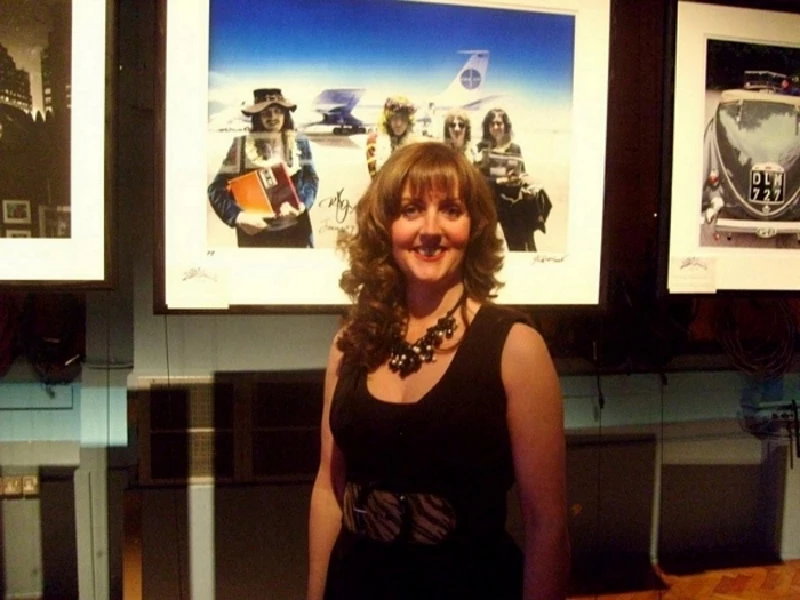
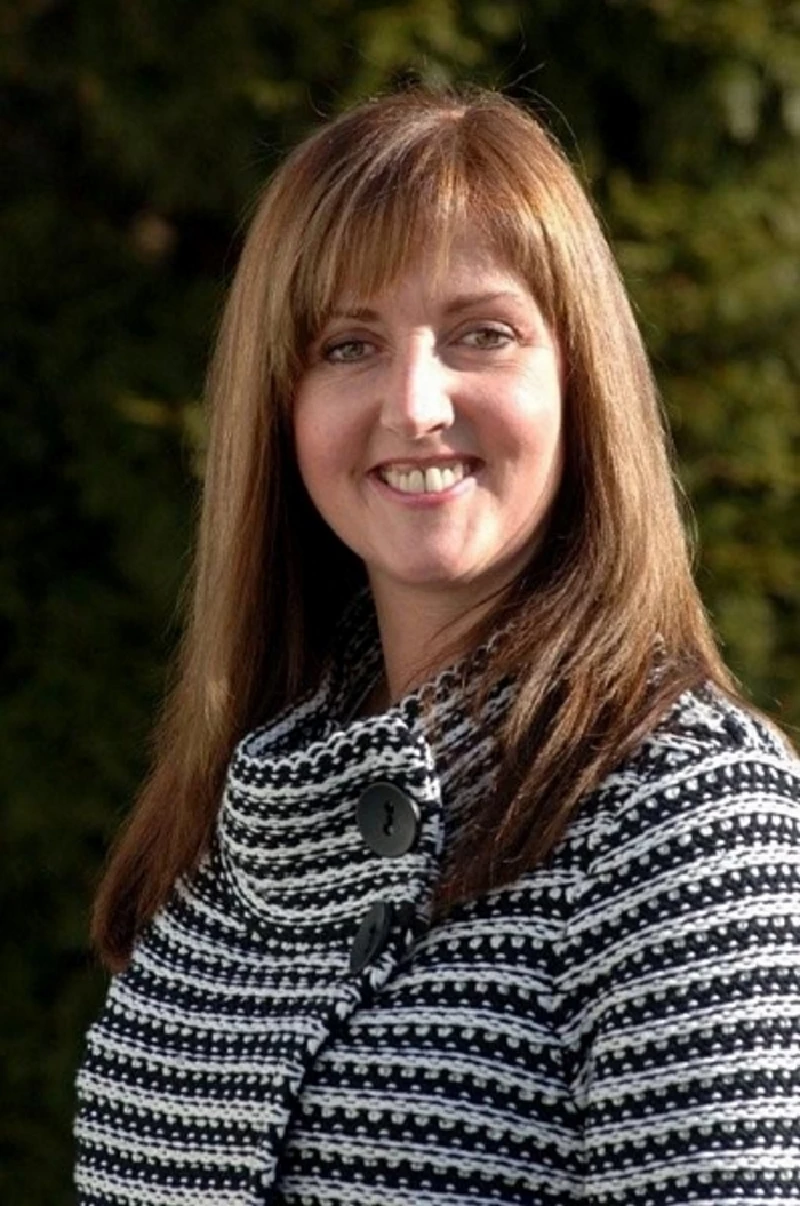
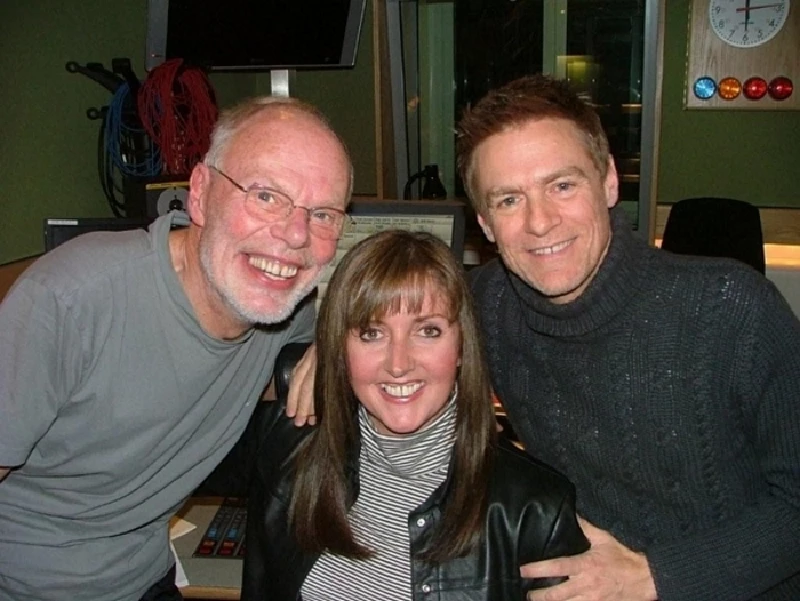
most viewed articles
current edition
Carl Ewens - David Bowie 1964 to 1982 On Track: Every Album, Every SongArmory Show - Interview with Richard Jobson
Colin Blunstone - Thalia Hall, Chicago, 16/7/2025
Visor Fest - Valencia, Spain, 26/9/2025...27/9/2025
Bathers - Photoscapes 1
John McKay - Interview
Loft - Interview
Billie Eilish - O2 Arena, London, 10/7/2025
Robert Forster - Interview
Sir Tim Rice - Interview
previous editions
Heavenly - P.U.N.K. Girl EPManic Street Preachers - (Gig of a Lifetime) Millennium Stadium, Cardiff, December 1999
Beautiful South - Ten Songs That Made Me Love...
Oasis - Oasis, Earl's Court, London, 1995
Pixies - Ten Songs That Made Me Love...
Boomtown Rats - Ten Songs That Made Me Love....
Trudie Myerscough-Harris - Interview
Prolapse - Interview
Peter Perrett - In Dreams Begin Responsibilities Interview Part One
Simon Heavisides - Destiny Stopped Screaming: The Life and Times of Adrian Borland
most viewed reviews
current edition
Amy Macdonald - Is This What You've Been Waiting For?Sick Man of Europe - The Sick Man of Europe
Lucy Spraggan - Other Sides of the Moon
Phew, Erika Kobayashi,, Dieter Moebius - Radium Girls
Davey Woodward - Mumbo in the Jumbo
Alice Cooper - The Revenge of Alice Cooper
Bush - I Beat Loneliness
Suzanne Vega - Flying With Angels
Blueboy - 2
Cynthia Erivo - I Forgive You
related articles |
|
Bob Harris: Interview (2021 |
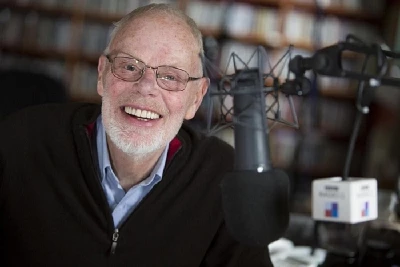
|
| BBC legend Bob Harris talks to Nick Dent-Robinson about his new all-star charity project to help musicians affected by the coronavirus. |
Pennyblackmusic Regular Contributors
Adrian Janes
Amanda J. Window
Andrew Twambley
Anthony Dhanendran
Benjamin Howarth
Cila Warncke
Daniel Cressey
Darren Aston
Dastardly
Dave Goodwin
Denzil Watson
Dominic B. Simpson
Eoghan Lyng
Fiona Hutchings
Harry Sherriff
Helen Tipping
Jamie Rowland
John Clarkson
Julie Cruickshank
Kimberly Bright
Lisa Torem
Maarten Schiethart